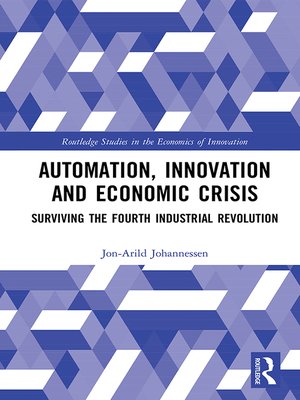Automation, Innovation and Economic Crisis
ebook ∣ Surviving the Fourth Industrial Revolution · Routledge Studies in the Economics of Innovation
By Jon-Arild Johannessen

Sign up to save your library
With an OverDrive account, you can save your favorite libraries for at-a-glance information about availability. Find out more about OverDrive accounts.
Find this title in Libby, the library reading app by OverDrive.



Search for a digital library with this title
Title found at these libraries:
| Library Name | Distance |
|---|---|
| Loading... |
The fourth industrial revolution is developing globally, with no geographical centre. It is also taking place at enormous speed. This development will shape the workplaces of the future, which will be entirely different from the workplaces created by the first, second and third industrial revolutions. Industry created the industrial worker. The knowledge society will create a new type of "industrial worker", the knowledge worker. While the third industrial revolution was concerned with the digitalization of work, in the fourth industrial revolution, robots will bring about the informatization of work. Many of these robots will be systematically connected, such that they can obtain updated information and learn from their own and others' mistakes. The way we work, where we work, what we work on, and our relationships with our colleagues and employers are all in a state of change. The workplace of the future will not necessarily be a fixed geographical location, but may be geographically distributed and functionally divided.
In his book, Jon-Arild Johannessen argues that a "perfect" social storm occurs when inequality grows at a catastrophic rate, unemployment increases, job security is threatened for a growing number and robotization takes over even the most underpaid jobs. Thus, the ingredients for a perfect social storm will be brought forward by cascades of innovations that will most likely lead to economic and social crises and he argues that it is reasonable to assume that it will only take a small spark for this social storm to develop into a social revolution.







